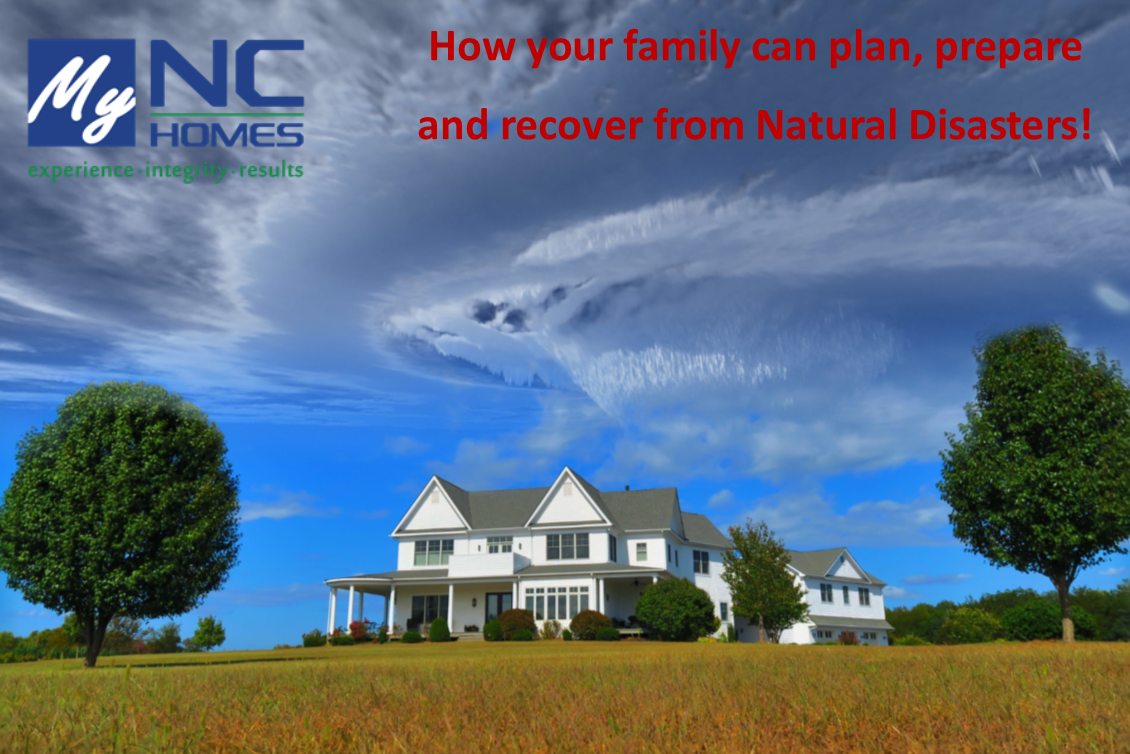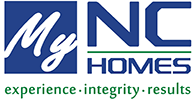How Your Family Can Prepare, Plan and Recover from Natural Disasters
Posted by Larry Tollen on Thursday, September 6th, 2018 at 11:14am

Preparing for Natural Disasters
People and businesses in the Carolinas are emerging from the aftermath of Hurricane Florence this week. Our home sellers were holding their breath as Hurricane Florence made her approach. Everyone in the Triangle was scrambling for basic needs. Clients selling their homes in this active market were also preparing extensively for measures to protect their homes. The majority of residents in the Triangle were fortunate to avoid extensive damage and disaster that other parts of of North Carolina are experiencing as a result of Florence.
Preparing your family
Hurricane Florence is not the first nor will she be the last hurricane to move through the Triangle. As storms like this increase in frequency, homeowners would be wise to prepare their homes. Whether it is hurricane, fire, tornado, or flooding, preparedness is critical for both physical and emotional protection and recovery efforts.
- Identify risks: In the Triangle area, we are not burdened by frequent earthquakes, but inclement weather is an occasional threat. The Super Outbreak of 2011 brought an onslaught of tornadoes to the area. Although weaker than the midwest, residents were not expecting 30 tornadoes in early April. Homes along the coast of North Carolina face the highest risk with hurricanes. Moving further inland ot the Raleigh-Durham area, we face less risk of such severe head-on damage. Hurricane winds have caused damage in the area, but flooding has historically been a larger threat for disaster.
- Insurance: Most home insurance does not cover water damage caused by flooding that comes from outside the home. If your home is in a flood plain, we strongly encourage homeowners to consider flood insurance. Having the right coverage to address the risks your home faces will bring peace of mind the next time disaster threatens. Please note that most flood insurance takes a minimum of 30 days to go into effect.
- Improvements: Making improvements in and around your home can ease the stress as you ride out the storms. One of our clients in Durham teamed up with their neighbor to create a rock garden between the homes to mitigate the deluge of water that occurred every time it rained. Investing in impact resistant windows will save you the trouble of boarding the windows during hurricane season. The added protection of strong windows will protect your home all year.
Plan for worst case scenario, hope for best case scenario
As Hurricane Florence made her slow approach, many Triangle residents were making adjustments and purchases to ensure their safety. One client in Hope Valley managed to find a generator at a local hardware store. She was not willing to take any chances:
“After riding out Hurricane Andrew in Miami as a child, I have seen first hand what disaster looks like. It only takes a split second to lose those modern conveniences and face the real struggle of survival. Even if I don’t have to use this generator, one of my neighbors may have to, and I will be right there for them.”
- When it comes to disasters, it is wise to plan for the worst-case scenario. Here are some things to consider as you plan:
- Identify safe zones: The most important thing you can do during disaster is to remain calm. Making sure your family has an established plan is critical for everyone safety and will help ensure that even the youngest members of the family can feel confident with a plan to follow. Plan for safe zones inside your home. Every building is different, so identify the safest area of your home or business in the event of a tornado or storm. Establish an escape route and list of contacts nearby if a hurricane or flood forces you and your family out of your home in an emergency situation. Make sure all occupied rooms have a quick and accessible escape route in the event of a fire. A collapsable escape ladder can be a good idea to keep under the bed in those rooms with high windows.
Secure documents: Many of us keep our important documents in the bottom of a drawer somewhere at home. While you can recover all of your vital records and documents, it can be a painstakingly slow and arduous process. You can save yourself time and stress by storing your documents and vital records in a safe (or even off location at a storage unit) to protect them from fire, flood, and robbery. - Prepare your home and family according to risks: If you are in a flood zone and dangerous and life threatening conditions are imminent, it is advisable that you find safer lodging options. After assessing the risk and you are opting to stay in your home, you will need to prepare the home as well as individuals inside the home.
- Consider the needs of people as well as pets. If you have small children, you should secure furniture to the wall in the event it falls over. To ensure that your pets are able to escape, you should never tie up or cage your pets. For longer-term preparation, understanding your utilities is key to preparation. For example, you may not need to stock up on water bottles and fill your bath tubs. Many Raleigh-Durham residents are on city water. There is a very slim chance these households to lose water even if they lose power. Water was scarce on the shelves this week at the stores as home were stocking bottled water. Unless the city notifies you, your city supplied drinking water is safe to consume.
Disaster recovery
In the event your home or land is in need of disaster recovery, there are resources and proven methods to navigate the mess.
- Evaluate the condition of the exterior of the home. Make sure you are wearing appropriate clothing and gloves. If you notice any structural damage, you should not enter the home. Call a building inspector or engineer if you notice damage such a sagging ceiling.
- Once you can safely navigate to the home itself, you should always proceed with caution. Take special care of exposed electrical, especially if the home has flooded. Turn off your water supply valve if pipes are leaking. If your home smells of gas, immediately turn off the gas supply as well.
- Once the surroundings are safe, you can begin cleanup. Making sure that you have the right tools to cleanup will make the job go faster and be more efficient.
- During cleanup you can take inventory for damages and loss. Making this list will help you prioritize what you need to replace. If you’re reading this now and you are not in need of disaster recovery, we encourage you to document your belongings so that if you need to claim insurance loss, you can be reimbursed for everything. Keep a digital backup of your belongings with pictures and descriptions. If you have completely lost or have damaged vital documents, here is a valuable resource on How To Replace Valuable Documents and Pick Out a Home Security Safe.
You may find yourself in need of outsourcing work on your home. Unfortunately, there are individuals out there that take advantage of people in desperation. You should be wise to these individuals and businesses and avoid scams. After disaster strikes, people often report that individuals or businesses will significantly raise the price of essentials, this is called price gouging, and it is illegal in North Carolina. If you suspect price gouging you should call or file a complaint with the NC Attorney General.
Recovery is a community effort
My NC Homes is committed to serving the Triangle and the greater North Carolina community. We hope that your families and homes are safe in the aftermath of Hurricane Florence. If you live in the Triangle, and need further assistance with finding local resources, dial 2-1-1 to reach the state’s resources. They will connect you to vetted local nonprofits to match with your needs.
Additional resources:
-
Make Water Safe (CDC)

Leave A Comment